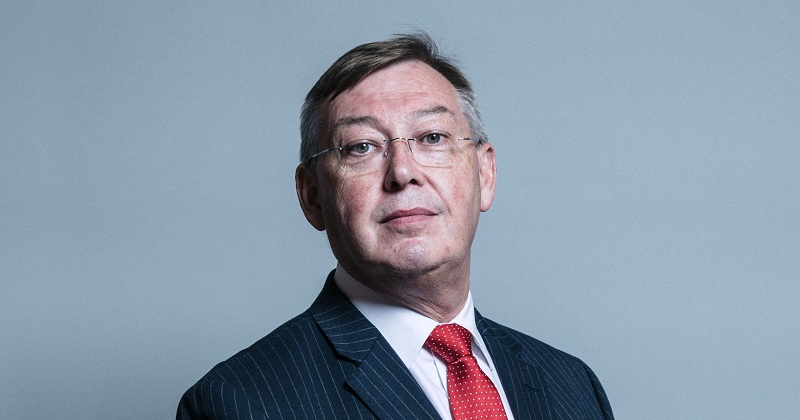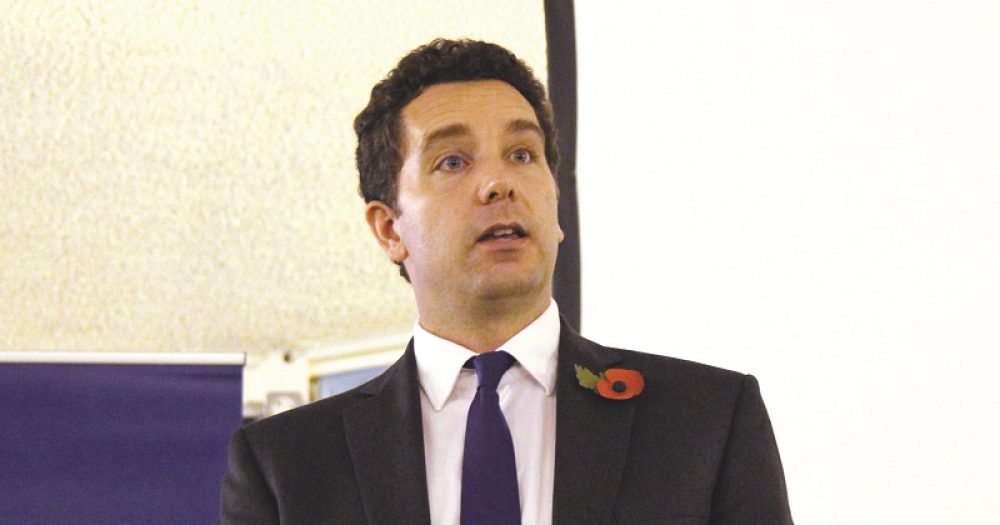The chair of a landmark review of exclusions expects the government to fund proposals put forward in his report, despite a lack of firm commitments from ministers.
Edward Timpson told MPs today that although he has received no “cast-iron guarantees” from ministers on funding for alternative provision, he is “working on the basis they have committed to resources”.
The schools community responded with disappointment when the Department for Education failed to fully commit to implementing the recommendations of the Timpson review, particularly proposals for more capital funding for alternative provision and a “practice improvement fund” to share best practice between institutions.
I’m working on the basis they have committed to resources because they have accepted my recommendations
But Timpson, the former children’s minister who chaired the review, told the parliamentary education committee this morning that he expects his recommendations to be implemented in full.
In his report, which was finally published in May after a long delay, Timpson called for the DfE to establish a practice improvement fund “of sufficient value, longevity and reach” to identify children in need of support and deliver “good interventions for them”.
He also demanded that the government “significantly improve and expand” AP buildings and facilities, with the “right level of capital funding” to be a priority for the next spending review.
However, its detailed response, published the same day, showed the government had only pledged a “practice programme” relating to the AP recommendation, with no mention of funding. There was also no commitment on AP capital funding.
At the time, Kiran Gill, an AP expert who served on the reference group for the review, said vulnerable children needed more than “warm wishes” from ministers, warning that expertise for the system “is not going to come from nowhere”.
“The fact that no funding has been pledged is a huge matter of concern,” said Gill.
Quizzed by Labour MP Ian Mearns, who chaired today’s committee hearing, Timpson said: “There is work that needs to be done. The government needs to commit to it, which includes those funding commitments.”

The former minister also said he hoped the response to the review would not lead to a repeat of the government’s 2014 reforms to SEND provision, widely seen as not having been backed up with the resources needed to make them work.
“I’m working on the basis they have committed to resources because they have accepted my recommendations,” Timpson said.
Pressed further on whether ministers had made him any specific promises, he added: “Sadly I don’t have any cast-iron guarantees, and I think we’re all waiting to see what happens over the next few months in any event. But what I do know is, and these are people I know, that these are not empty promises.
“For me, when we eventually are able to concentrate more rigorously on the domestic agenda, this, I would suggest, is an area that is ripe for addressing some of the fractures that we have in our society and our ability to respond to the most pressing issues, which include those who we are leaving behind while many of us continue to move forward.”



“Timpson: I expect DfE to fund my review recommendations” As it is mainly Academies that need to be targeted I think this outcome is unlikely. See my latest article.
https://rogertitcombelearningmatters.wordpress.com/2019/07/02/schools-should-be-genuinely-child-centred-part-1-special-educational-needs-and-safeguarding-are-connected/
This was the theme of a feature on Ch4 News on 27 June 2019
https://www.channel4.com/news/the-five-year-olds-excluded-from-school
Presenter Jackie Long stated:
“They are barely, it seems, through the school gates before getting excluded – pupils as young as five years old who are being sent out of mainstream education. Extraordinary new figures out today reveal almost 6,000 pupils between the ages of five and ten are in pupil referral units or alternative provision across England – an astonishing increase of 85 per cent since 2011.”
Can excluding children so young from school ever be justified and what has happened to them since? The answer is even more shocking. The Education Select Committee Report of July 2018 stated that pupils in alternative provision should be able to access GCSEs and technical qualifications.
” However, we were told that 1% of children in alternative provision get five good GCSEs with English and maths but 99% do not.”
A high proportion of offenders detained in youth custody and prisons have been permanently excluded from their schools.
Having worked as a teacher for more than 20 years with children in public care I can appreciate why mainstream schools feel justified in excluding pupils: schools are unable to manage the often extreme levels of disruption presented by pupils who have emotional and behavioural difficulties.
However, having worked more recently with excluded pupils ( all in year 11) it is clear that the AP provided, is not adequate and only helps to reinforce the already low self- esteem these pupils have and which lowers further, their chances of achieving the government’s GCSE target grades.
Allan Sherwood
For further information see my book- “ These Kids-Teaching in a residential care setting: a survivor’s guide.